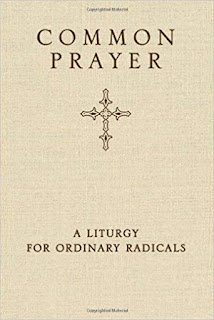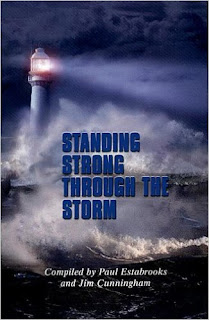The Daily Lectionary
MONDAY, August 10, 2020
Psalm 28; Genesis 37:29-36; 2 Peter 2:4-10
(Revised Common Lectionary Year A)
(Semicontinuous Reading Plan)
God hears my pleadings
1 To you, Lord, I call;
you are my Rock,
do not turn a deaf ear to me.
For if you remain silent,
I will be like those who go down to the pit.
2 Hear my cry for mercy
as I call to you for help,
as I lift up my hands
toward your Most Holy Place.
3 Do not drag me away with the wicked,
with those who do evil,
who speak cordially with their neighbors
but harbor malice in their hearts.
4 Repay them for their deeds
and for their evil work;
repay them for what their hands have done
and bring back on them what they deserve.
5 Because they have no regard for the deeds of the Lord
and what his hands have done,
he will tear them down
and never build them up again.
6 Praise be to the Lord,
for he has heard my cry for mercy.
7 The Lord is my strength and my shield;
my heart trusts in him, and he helps me.
My heart leaps for joy,
and with my song I praise him.
8 The Lord is the strength of his people,
a fortress of salvation for his anointed one.
9 Save your people and bless your inheritance;
be their shepherd and carry them forever.
Jacob mourns Joseph’s loss
37:29 When Reuben returned to the cistern and saw that Joseph was not there, he tore his clothes. 30 He went back to his brothers and said, “The boy isn’t there! Where can I turn now?”
31 Then they got Joseph’s robe, slaughtered a goat and dipped the robe in the blood. 32 They took the ornate robe back to their father and said, “We found this. Examine it to see whether it is your son’s robe.”
33 He recognized it and said, “It is my son’s robe! Some ferocious animal has devoured him. Joseph has surely been torn to pieces.”
34 Then Jacob tore his clothes, put on sackcloth and mourned for his son many days. 35 All his sons and daughters came to comfort him, but he refused to be comforted. “No,” he said, “I will continue to mourn until I join my son in the grave.” So his father wept for him.
36 Meanwhile, the Midianites sold Joseph in Egypt to Potiphar, one of Pharaoh’s officials, the captain of the guard.
God judges and rescues
2:4 For if God did not spare angels when they sinned, but sent them to hell, putting them in chains of darkness to be held for judgment; 5 if he did not spare the ancient world when he brought the flood on its ungodly people, but protected Noah, a preacher of righteousness, and seven others; 6 if he condemned the cities of Sodom and Gomorrah by burning them to ashes, and made them an example of what is going to happen to the ungodly; 7 and if he rescued Lot, a righteous man, who was distressed by the depraved conduct of the lawless 8 (for that righteous man, living among them day after day, was tormented in his righteous soul by the lawless deeds he saw and heard)— 9 if this is so, then the Lord knows how to rescue the godly from trials and to hold the unrighteous for punishment on the day of judgment. 10 This is especially true of those who follow the corrupt desire of the flesh and despise authority.
Bold and arrogant, they are not afraid to heap abuse on celestial beings;
Optional parts of the readings are set off in [square brackets.]
The Bible texts of the Old Testament, Epistle, and Gospel lessons are from The Holy Bible, New International Version®, NIV® Copyright ©1973, 1978, 1984, 2011 by Biblica, Inc.® Used by permission. All rights reserved worldwide.
The Daily Lectionary is a three-year cyclical lectionary. We are currently in Year A. Beginning with the first Sunday of Advent in 2020, we will be in Year B. The year which ended at Advent 2019 was Year C. These readings complement the Sunday and festival readings: Thursday through Saturday readings help prepare the reader for the Sunday ahead; Monday through Wednesday readings help the reader reflect and digest what they heard in worship. Revised Common Lectionary Daily Readings, copyright © 2005 Consultation on Common Texts. www.commontexts.org
The Daily Lectionary for MONDAY, August 10, 2020
Psalm 28; Genesis 37:29-36; 2 Peter 2:4-10









